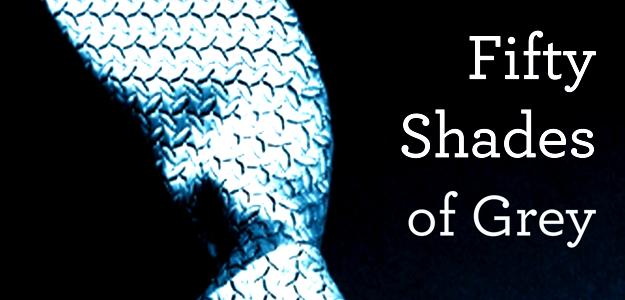 For centuries, the United Kingdom has felt a certain amount of pride in its literary tradition. After all, this was a country with a proud history of turning out famous – and extremely important – writers from William Shakespeare and Charles Dickens all the way through JK Rowling and Philip Pullman, with the likes of Oscar Wilde or populists like HG Wells, Roald Dahl and Douglas Adams in there as well. The United Kingdom, it was generally agreed – if an unspoken agreement, admittedly – knew the difference between “good” literature and trash, to the point where even its pop culture was of a certain quality that would last through the ages and be recognized as valuable later. That sense of superiority and, yes, some might say “smugness,” has been somewhat tarnished with the news today that Fifty Shades of Grey, the self-published Twilight fan-fiction-turned-bondage-themed novel that turned into an Internet phenomenon, has become the best-selling novel in British history.
For centuries, the United Kingdom has felt a certain amount of pride in its literary tradition. After all, this was a country with a proud history of turning out famous – and extremely important – writers from William Shakespeare and Charles Dickens all the way through JK Rowling and Philip Pullman, with the likes of Oscar Wilde or populists like HG Wells, Roald Dahl and Douglas Adams in there as well. The United Kingdom, it was generally agreed – if an unspoken agreement, admittedly – knew the difference between “good” literature and trash, to the point where even its pop culture was of a certain quality that would last through the ages and be recognized as valuable later. That sense of superiority and, yes, some might say “smugness,” has been somewhat tarnished with the news today that Fifty Shades of Grey, the self-published Twilight fan-fiction-turned-bondage-themed novel that turned into an Internet phenomenon, has become the best-selling novel in British history.
(For those curious; yes, EL James, the author of Fifty Shades and its two sequels Fifty Shades Darker and Fifty Shades Freed, is British; despite the novels being set in the US, James – real name Erika Leonard – is actually a former television executive who lives in London with her husband and two children.)
After sixteen weeks on UK Best-Seller lists, Fifty Shades of Grey’s sales have reached an estimated 5.3 million copies between physical and digital editions in the United Kingdom, allowing it to take the crown of best-seller easily from its closest rivals, The Highway Code and Dan Brown’s The Da Vinci Code.
In a statement about the achievement, James said that “My main ambition when I signed the deal with Random House was to see my books in the shops. I simply had no idea they would be so successful and this is totally unexpected. The whole process has been both extraordinary and rewarding. I couldn’t be more pleased with the sales and would like to thank everyone involved.”
Sales of the title aren’t set to slow down anytime soon; unlike the Harry Potter series, this particular set of novels has achieved record-breaking success without the aid of multimedia tie-ins, although those are on the way, of course (This is, after all, a genuine phenomenon; there’s no way that Hollywood could stay away for too long, although it’ll be interesting to see how much of the BDSM themes present in the books make it to the screen). Having paid $5 million for the movie rights earlier this year, Universal Studios and Focus Features are reportedly creating a shortlist of potential screenwriters for the project. Just imagine how many sales the book will have reached by the time the movie eventually comes out, and shake your head in despair for the formerly grand British tradition.


